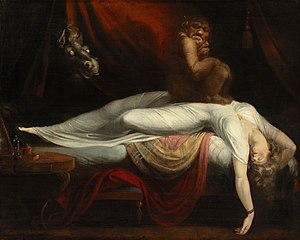
Romantic psychology was an intellectual movement that emerged in the late 18th and early 19th centuries in Europe, particularly in Germany. It was a response to the Enlightenment's emphasis on reason and rationality, which Romantic psychologists believed neglected the importance of emotions, imagination, and intuition in human experience.
Romantic psychology is characterized by its philosophical approach, its interest in subjectivity and personal experience, as well as its attachment to the concept of the soul or spirit. It emphasizes the subjective experience of the individual and focuses on the study of emotions, intuition and imagination.
Romantic psychologists sought to understand the links between the mind and the body, as well as the unconscious processes of the human psyche. Major subjects in the field of Romantic psychology included mystical ecstasy, poetic and artistic inspiration, and dreams. The concepts associated with it are now seen as the origin of dynamic psychology. The role of Romantic psychology in the emergence of psychoanalysis and analytical psychology remains a topic of controversy.
